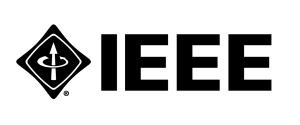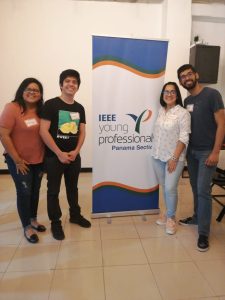We had the pleasure of speaking to the IEEE President, Barry Shoop at the Board Series Meeting in San Diego. Barry provides IMPACT by IEEE Young Professionals an exclusive interview.
Barry also provides a personal message to all IEEE Young Professionals. Watch the video below.
What motivated you to become an IEEE member and what is it about the IEEE that keeps you motivated to continue volunteering?
I became an IEEE student member during my sophomore year at Penn State. One of my electrical engineering professors came-into class one day and said rather authoritatively: “You are going to be part of the electrical engineering profession so you should become a member of our professional society, the IEEE.” So I signed-up!
IEEE is an absolutely amazing professional organization, the largest technical-professional association in the world – with over 426,000 members from over 160 countries worldwide. We have 45 technical societies and councils, support over 1600 conferences worldwide annually, have close to 4M technical documents and over 160 of the top cited periodicals. IEEE makes contributions and impacts a wide-spectrum of different technology areas, disciplines and applications – education from very young to senior professionals; accreditation, conferences, humanitarian efforts, standards, local technical and professional activities, public policy, … and the list goes on! (Standards: IEEE standards are household names – IEEE 802.11 is WiFi; IEEE 802.15 is Bluetooth; IEEE 1394 is FireWire) We Advance Technology for Humanity!!
The metropolitan area workshops was one of the exciting initiatives which really took off under your leadership as VP of MGA. Where do you see this program going in the next few years and how important are they for young professionals who have recently been employed?
The Metropolitan Area Workshop was designed to be a large-scale, multi-day, multi-track event focused on training and certification for technical professionals. They are designed for practicing engineers and technical professionals who are innovators, have a desire to learn more, are in a career transition, or are considering a career change. They were focused on large metropolitan areas to maximize participants and accessibility and on under-represented markets and potential growth sectors. Since the inception, there have been numerous very successful workshops held across the United States and they have also expanded outside of the U.S. with equally successful workshops being held in Tokyo, Japan, Amman, Jordon, Bangalore, India, Glasgow, Scotland and Paris, France. In April we will hold one in Shenzhen, China. The workshops were originally designed to meet the needs for industry professionals and as we continue our efforts to better engage industry I think these workshops will be an important element of the products and services IEEE can provide.
Since these workshops address the most impactful technology areas, they provide an ideal opportunity for Young Professionals to remain abreast of emerging technologies. Some current examples includeWireless Communications, Smart Grid, Mobile App Development, Intellectual Property, Software Security and Cloud Computing. As a Young Professional it is important to continue to learn, in both depth and breadth. I would also offer that many Young Professionals are some of the smartest people I have encountered! They have skills and expertise that would be valuable to the broader community so don’t hesitate to volunteer to be a presenter at one of these workshops.
You are a strong believer in the IEEE becoming more innovative and nimble. How do we ensure that the organisation fosters more of this including an entrepreneurial culture amongst young professionals?
We’ve already received comments from our global IEEE community regarding the need for more agility in our operations, and a number of volunteers cited the need to foster entrepreneurial efforts within IEEE—at all levels, not just among Young Professionals. To that end, I held a retreat for the Board of Directors this January that focused on answering the question, “What must we do now and over the next 2 years to capitalize on existing or emerging opportunities in our external environment, and to strengthen and deepen our connections to industry, in order to ensure sustained long-term growth?” I specifically invited Young Professionals to gain their perspective and we are now working on refining the recommended strategies and priorities that emerged, and to assign next steps and accountabilities for further execution. I would also offer that our broader Young Professional community should be actively engaged in understanding the organizational changes being proposed to the IEEE to make it more nimble and innovative. We are working on a project to best position the IEEE for 2030 – this is Your IEEE!!
Stepping in as President in 2016, what is the number one issue facing IEEE that you want to address and how will you address it?
Reinvigorating IEEE’s connection with industry. IEEE’s rich heritage dates back to 1884 and the American Institute of Electrical Engineers (AIEE), 1912 with the Institute of Radio Engineers (IRE) and the merger of these two societies to become the IEEE in 1963. In the early days, these were the associations to belong to if you were working in industry. Over the time, that has shifted. I have already created several Ad Hoc Committees and initiatives focused on IEEE’s relationship with industry. I am pleased that work is already underway, and I look forward to the strides we can make in this area throughout 2016 and beyond.
What advice can you provide for Young Professionals aspiring to take up senior leadership roles within IEEE?
Just do it! Don’t think about it or debate whether or not it’s a good idea or form a committee to study the problem. IEEE and our professions are fundamentally about community, and nothing broadens your community like taking on a leadership role. It will be personally rewarding as you lead efforts to contribute to your professional society. It will be professionally rewards because you will develop important leadership and teambuilding skills that are transferable to your ‘day job’. I would also recommend that individuals seek-out a mentor that can help you assess your strengths and passions and then guide you to the most appropriate leadership positions.
About Barry Shoop
Barry L. Shoop is Professor of Electrical Engineering and Head of the Department of Electrical Engineering and Computer Science at the U.S. Military Academy at West Point. During his 20 years at West Point he has served in a number of key leadership positions including Director of the Photonics Research Center and Director of the Electrical Engineering Program. Currently as Professor and Head he is responsible for an undergraduate academic department with over 79 faculty and staff supporting ABET accredited programs in electrical engineering, computer science, and information technology. The department engages over 1800 students each year and has 4 affiliated research centers including the Cyber Research Center, Network Science Center, Photonics Research Center and a burgeoning Robotics Program. Dr. Shoop holds 1 patent and has authored or co-authored 8 books and book chapters, and over 146 publications. He received a B.S. from the Pennsylvania State University in 1980 and Ph.D. from Stanford University in 1992, both in electrical engineering. His research interests include optical information processing, neural networks, image processing, disruptive innovations and educational pedagogy. He is a Fellow of the IEEE, OSA and SPIE, and a member of Phi Kappa Phi, Eta Kappa Nu, and Sigma Xi. He is a licensed Professional Engineer in the Commonwealth of Virginia
Interview conducted by Eddie Custovic, Editor in Chief, Impact by IEEE Young Professionals.





